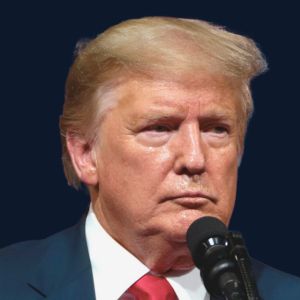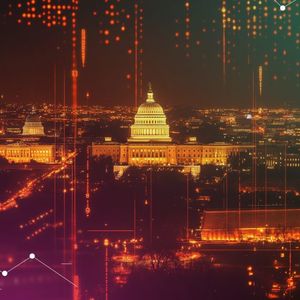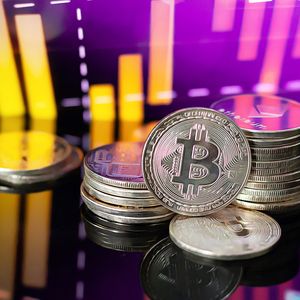President Donald Trump has pledged to initiate a national security investigation into semiconductor imports. The probe, which is being conducted under Section 232 of the Trade Expansion Act, is aimed at determining whether the heavy U.S. dependence on foreign chips threatens national security. Trump announced the news on Sunday. “We are considering a wide variety of options on Semiconductors and the WHOLE ELECTRONICS SUPPLY CHAIN for future National Security Tariff Investigations,” he wrote. If the findings bear out, the United States could impose tariffs on imported semiconductors and related technologies, as Trump wanted. Most of America’s chips are in East Asia, specifically Taiwan, South Korea, Japan, Malaysia, and China. Trump’s team contends that reliance is dangerous, particularly amid global tensions. The tariffs in question would be applied at a proposed rate of 25% and gradually elevated as time goes on. The aim is to compel companies to produce chips in the U.S., where Trump claims they are safe and controlled. Trump administration prepares fresh tariffs on electronics and semiconductors Last Friday, the United States government announced a temporary exemption for consumer electronics, smartphones, laptops, and tablets from the latest round of steep mutual tariffs on Chinese imports. The move provided some immediate relief for tech giants like Apple, Dell, and HP, all of which depend on manufacturing operations in China. For instance, Apple has most of its iPhones assembled in factories in China by contractors like Foxconn. However, President Donald Trump signaled over the weekend that this relief is temporary. In a post on his social media platform on Thursday, Trump said the electronics were just being moved to a new tab without indicating any new trade measures were on the way. According to Commerce Secretary Howard Lutnick, the administration plans to implement separate tariffs that will apply to electronics and semiconductors in the coming one to two months. Lutnick also said in an interview on Sunday that the electronics were previously exempt from the reciprocal tariffs but are included in the new semiconductor and electronics tariff package. The new tariffs will apply to high-tech goods considered key to national security, including smartphones, computers, medical devices, advanced telecom gear, and pharmaceutical components. Lutnick stressed that the administration aims to lessen reliance on supply chains in China and encourage production at home. Critics say the move may increase prices on consumer electronics and worsen already stretched supply chains. However, Trump officials say the longer-term benefits of economic security and job creation are worth the kinks in the immediate term. Lutnick also mentioned that they had done it before in the steel industry and would do it again in the electronics industry. Critics warn the tariffs will hurt the economy Not everyone is on board with Trump’s plan. Economists and investors have warned that continuing to raise tariffs would damage the economy. Billionaire investor Bill Ackman, a political backer of Trump, said the policy was too aggressive. He urged Trump to delay the China tariffs for 90 days and pursue a more limited 10% rate instead. According to Ackman, this scaled-back approach would still motivate companies to reduce their reliance on China — without creating market panic. Market analysts have also raised alarms over potential price increases for consumer electronics like iPhones and laptops. Sven Henrich of NorthmanTrader warned that the costs of new tariffs would ultimately fall on American consumers. He also aimed the administration’s erratic messaging, saying the shifting policies make it impossible for businesses to plan effectively. Democratic Senator Elizabeth Warren slammed Trump’s tariff strategy, calling it “not a coherent tariff policy — it is chaos.” China hits back with 125% tariffs as U.S. shuns talks, eyes deals with allies China has increased its tariffs on American goods to 125% in a retaliatory move. Its Ministry of Commerce said it studied the U.S. exclusions and warned of further action if necessary. “The bell on a tiger’s neck can only be untied by the one who tied it,” China said cryptically. White House officials say they are willing to negotiate trade deals with countries like Japan, South Korea, India, and the EU — but not China. Peter Navarro, Trump’s trade adviser, said the United States sought to partner with “trusted allies” while blaming China for stoking the fentanyl crisis and abusing trade rules. Trump is not intending to speak directly to Chinese President Xi Jinping at this time, U.S. Trade Representative Jamieson Greer said. Instead, the administration is looking for deals with other countries in the coming weeks. But concerns are rising. On Sunday, billionaire hedge fund manager Ray Dalio warned that the economy could tumble into recession — or worse — if the tariffs are botched. Cryptopolitan Academy: Coming Soon - A New Way to Earn Passive Income with DeFi in 2025. Learn More















